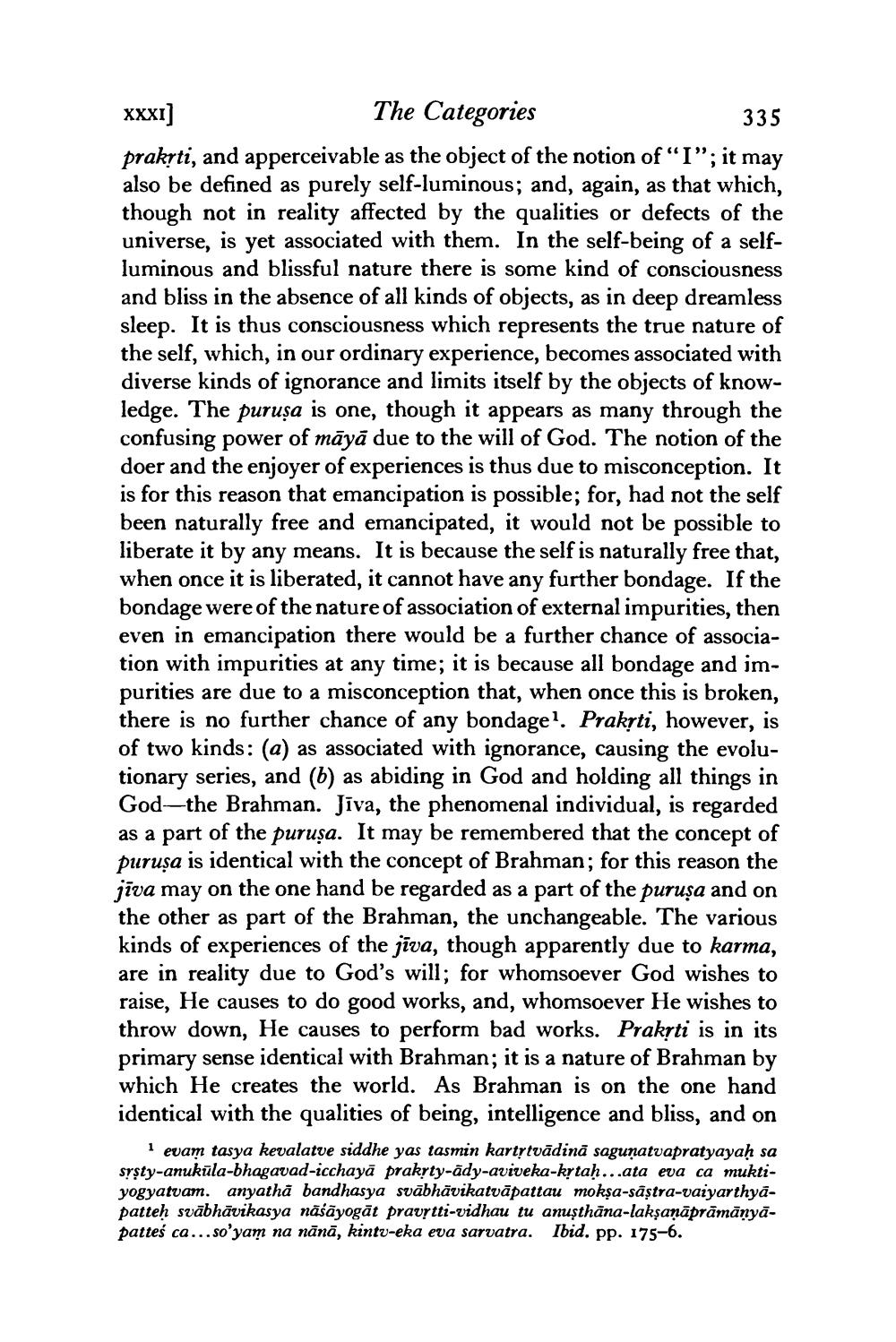________________
XXXI) The Categories
335 prakrti, and apperceivable as the object of the notion of “I”; it may also be defined as purely self-luminous; and, again, as that which, though not in reality affected by the qualities or defects of the universe, is yet associated with them. In the self-being of a selfluminous and blissful nature there is some kind of consciousness and bliss in the absence of all kinds of objects, as in deep dreamless sleep. It is thus consciousness which represents the true nature of the self, which, in our ordinary experience, becomes associated with diverse kinds of ignorance and limits itself by the objects of knowledge. The purusa is one, though it appears as many through the confusing power of māyā due to the will of God. The notion of the doer and the enjoyer of experiences is thus due to misconception. It is for this reason that emancipation is possible; for, had not the self been naturally free and emancipated, it would not be possible to liberate it by any means. It is because the self is naturally free that, when once it is liberated, it cannot have any further bondage. If the bondage were of the nature of association of external impurities, then even in emancipation there would be a further chance of association with impurities at any time; it is because all bondage and impurities are due to a misconception that, when once this is broken, there is no further chance of any bondage?. Praksti, however, is of two kinds: (a) as associated with ignorance, causing the evolutionary series, and (6) as abiding in God and holding all things in God-the Brahman. Jiva, the phenomenal individual, is regarded as a part of the puruşa. It may be remembered that the concept of purusa is identical with the concept of Brahman; for this reason the jīva may on the one hand be regarded as a part of the purusa and on the other as part of the Brahman, the unchangeable. The various kinds of experiences of the jīva, though apparently due to karma, are in reality due to God's will; for whomsoever God wishes to raise, He causes to do good works, and, whomsoever He wishes to throw down, He causes to perform bad works. Prakrti is in its primary sense identical with Brahman; it is a nature of Brahman by which He creates the world. As Brahman is on the one hand identical with the qualities of being, intelligence and bliss, and on
evam tasya kevalatve siddhe yas tasmin kartytvādinā sagunatvapratyayaḥ sa systy-anukūla-bhagavad-icchayā prakrty-ādy-aviveka-kytaḥ...ata eva ca muktiyogyatvam. anyatha bandhasya svābhāvikatvāpattau mokşa-sāştra-vaiyarthyapatteh svābhāvikasya nāśāyogāt pravrtti-vidhau tu anuşthāna-lakşaņāprāmānyapatteś ca...so'yam na nānā, kintu-eka eva sarvatra. Ibid. pp. 175-6.




